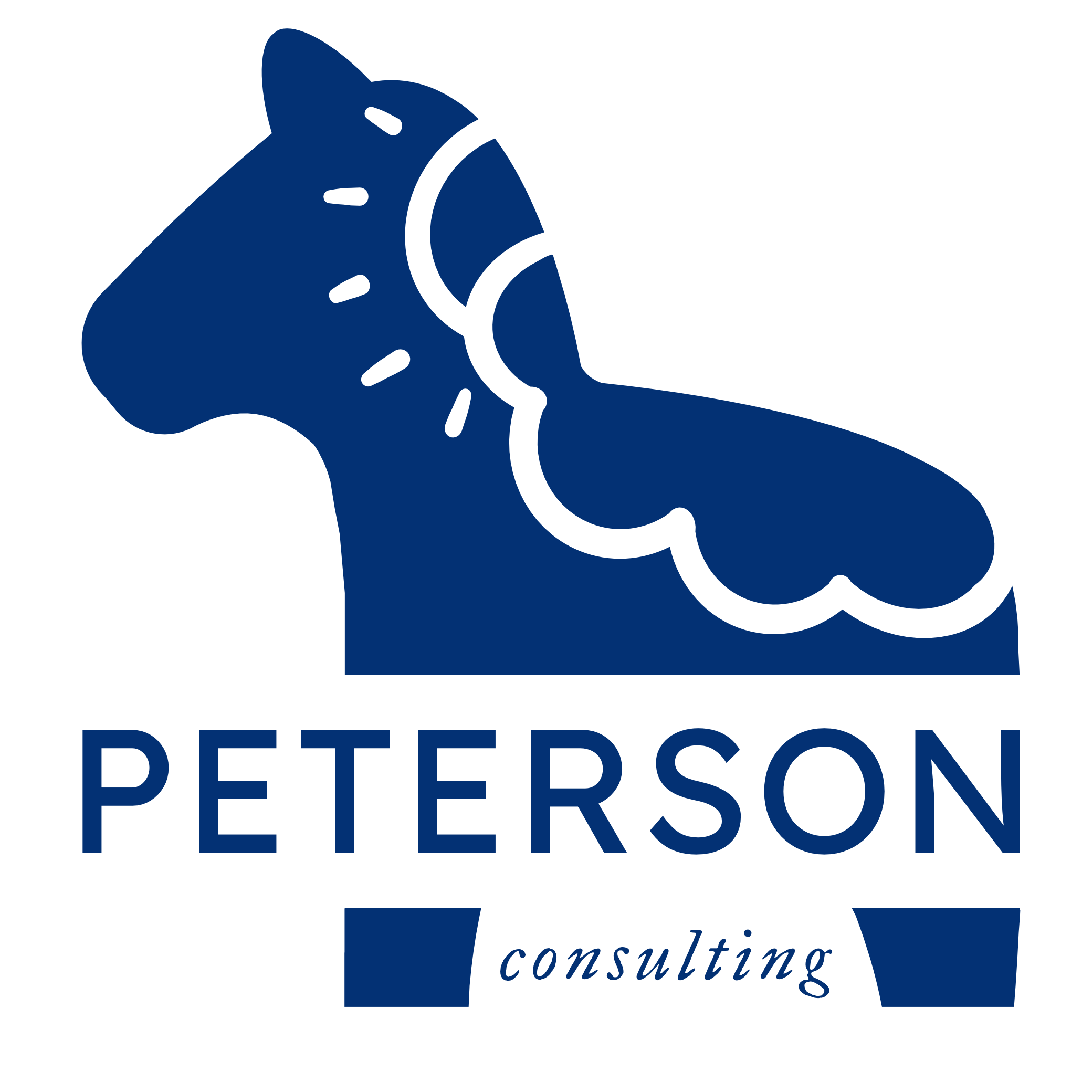I make these ethical pledges...
I make these ethical pledges...
with special consideration for those who
belong to vulnerable market segments,
are unfamiliar with marketing,
or may be historically disadvantaged
by undue influence
(e.g., high-control religions or commercial cults).
You’re invited to hold me accountable.
Please connect with me or one of my colleagues if you see me not honoring these pledges. I will want to know!
I am both a business consultant and coach. I am not a therapist, social worker, nor counselor. During a session, I do my best to let a client know whenever I switch from wearing a "coach" hat or "consultant" hat.
I make this pledge so that clients are equipped to make informed decisions while understanding the difference between these two roles. For example:
- A coach might prompt a client's self-discovery around a particularly risky marketing decision.
- A consultant might give professional advice to avoid, mitigate, or green-light a particularly risky marketing decision.
Important Note: In both scenarios, the client retains their personal autonomy and power of choice.
- My practice is founded on scientifically recognized and empirically-based knowledge.
- My clients are accepted only on the basis of my existing competence or the intention to acquire the necessary competence.
- My qualifications, level of competency, expertise, experience, training, certifications, and credentials are publicly available.
- I respect and uphold public laws and expectations that govern my work, participation in professional activities, and professional bodies (e.g., memberships, certifications);
- I’ve committed to continued personal, professional, and ethical education and development—critically examining and keeping current with emerging knowledge in my field.
- I work to develop and strengthen relationships with colleagues from other disciplines to serve clients best.
- I recognize the central importance of human relationships and put the person before the sale.
- I do not practice, condone, facilitate, or collaborate with any form of discrimination, oppression, racism, or inequity.
- I do not hesitate to acknowledge personal privilege in myself or my clients.
- I value individual differences and avoid stereotyping or depicting demographic groups negatively or in a dehumanizing manner.
- I strive to help all audiences feel welcome and demonstrate an understanding of culture and its function in human behavior and society.
- A spirit of truthfulness, inclusion, and openness is prioritized in operations and marketing. For example, clear, understandable language is used to inform clients of their risks, limits, requirements, alternatives, rights, and responsibilities.
- I promise to represent my products and offerings in a clear way in selling, advertising, and other forms of communication, and direct my clients to do the same for their own businesses.
- I will not intentionally confuse you or hide information from you.
- I accept constructive criticism from all clients and stakeholders.
- This includes maintaining the strictest levels of confidentiality with all parties as agreed upon.
- I am aware of and agree to comply with all applicable laws that pertain to personal data and communications.
- I take reasonable steps to protect the confidentiality of electronic communications, including information provided to clients or third parties.
- I develop and disclose policies and procedures for notifying clients of any breach of confidential information in a timely manner.
- I recognize that consumer confidence is enhanced through building relationships and maintaining business integrity.
- I affirm these core values: trustworthiness, respect, responsibility, fairness, caring, and citizenship (Schwartz, 2002).
- I’m committed to acting with and promoting the highest sense of integrity, honesty, and fairness in my participation in professional activities.
- This means striving for good faith, fair dealing, efficacy, and avoiding deception in product design, pricing, communication, and delivery of distribution.
- There is a continuous review of my sales and marketing to ensure they benefit the common good and help make the best choice for others' needs, not solely my own.
- I’m committed to avoiding false, misleading, and deceptive business methods.
- Therefore, I reject manipulative sales tactics that harm customer trust and refuse to engage in price-fixing, predatory pricing, price gouging, or “bait-and-switch” tactics
- I do not participate in fee splitting, giving or receiving commissions, rebates, or any other form of remuneration, especially when referring clients for professional services or products.
- I do not engage in nor recommend my clients engage in affiliate marketing or uninvited solicitation (The only exception to this, as of August 2022, is with links directed to products on Bookshop.org, which benefit local independent bookstores instead of Amazon.)
- I will not take unfair advantage of any professional relationship. Nor will I exploit others to further personal, religious, political, or business interests.
- I take responsibility for my part in changing the marketplace.
- I’m driven to enhance my clients’ capacity, increase their opportunity to change, and ability to build their resilience.
- I urge supply chain members to ensure that trade is fair for all participants, including producers and their families in developing countries.
- I acknowledge that every industry sector and marketing sub-discipline (e.g., marketing research, e-commerce, Internet selling, and advertising) has specific ethical issues requiring unique policies and commentary.
- I acknowledge the social and global obligations that come with increased business and economic power, and I recognize the need to break the cycle of consumerism.
My business gives back to the community through volunteering and charitable donations.
- This means consciously avoiding harmful actions or omissions by embodying high ethical standards and adhering to all applicable laws and regulations in the choices I make.
- I consider environmental stewardship in my decision-making and strive to protect the ecological environment through sustainability efforts to fulfill economic, legal, philanthropic, and societal responsibilities.
- I’ve committed to taking measures to care for myself professionally and personally.
- Whenever possible, I act to avoid harming clients, colleagues, and research participants and to minimize or remedy unavoidable or unanticipated harm.
- I seek to have a positive impact on those with whom I interact professionally.
MORAL STANDARDS
For evaluating a company's ethics and decision-making, I recommend looking to M.S. Schwartz's six moral standards from A Code of Ethics for Corporate Code of Ethics (Journal of Business Ethics, 2002, 41(1-2), 27-43):






CODE OF CONDUCT
Ethical Norms & Other Expectations
Ethical decision-making is a process. Ethical responsibilities flow from all human relationships, from the personal and familial to the social and professional. When conflicting obligations arise, we are all faced with complex ethical dilemmas to which there are no simple answers.
In my dealings with clients, I’ve pledged to take into consideration all the values, principles, and standards that are relevant to any situation in which ethical judgment is warranted.
Below you'll find a set of values, principles, and standards that guide decision-making and conduct, especially when ethical issues arise. It does not provide a set of rules that prescribe how I should act in all situations. Specific situations must take into account the context in which it is being considered and the possibility of conflicts among my values, principles, and standards.
Adherence to this Code of Ethics is required by all Peterson Resilience employees and support personnel. As the owner of Peterson Resilience Consulting, I am committed to providing for and arranging PRC staff's continued education and development in the realm of business ethics.
Onboarding
For a better understanding of the nature and potential value of our relationship, the nature and limits of confidentiality, financial arrangements, and any other client agreement terms, clients can expect an explanation prior to or at our initial meeting.
(Ongoing) Communication
As a client, you can expect clear communication and informed consent throughout our working relationship. I strive to provide a clear understanding of how information is exchanged among all parties involved during client interactions.
Working Relationship
During our sessions, you can anticipate that I will assist in identifying and clarifying your goals. I’m committed to promoting your right to self-determination. As such, I recognize my responsibility to enhance your capacity, build your resilience, increase your opportunities to change, and address your own needs. Questions, interruptions, breaks, and requests for further clarification are welcome.
Cultural Humility
My clients are experts in their own lived experiences and cultures. I strive to demonstrate awareness and cultural humility by engaging in critical self-reflection. This includes understanding my own bias and engaging in self-correction. I am committed to a lifetime of learning and holding institutions accountable for advancing cultural humility. Our sessions reflect this commitment.
Time-Outs
During any session, there is an open invitation to request a short break for self-regulation and respecting mutual interdependence. This open invitation is out of respect to each of our personal limitations, history of trauma, or any other circumstance that may impair, conflict with, or interfere with our mutual performance or professional relationships. Requesting time-outs also applies to grabbing a fresh cup of coffee! :-)
Billing
PRC’s billing practices accurately reflect the nature and extent of services provided. Receipts are emailed upon purchase.
Intellectual Property
You can expect that I will acknowledge the work and contributions made by others. I take credit, including authorship credit, only for work I have actually performed and to which I have contributed.
Role Changes in the Relationship
When Peterson Resilience Consulting requires a role change from the original or most recent contracted relationship, I will obtain informed consent from the client and explain the client’s right to refuse services related to the change. Examples of role changes include, but are not limited to, changing from consultant to coach or mentor or vice versa.
Clients Served by Others
When PRC learns that a client is in a professional relationship with a mental health professional, the client is offered an opportunity to request a release of information form between both professionals to establish positive and collaborative professional relationships on behalf of the client’s best interest. (Note: This is in alignment with the American Counseling Association’s Code of Ethics A.3.)
You can expect that I will treat colleagues with respect and accurately represent their qualifications, views, and obligations. I also avoid unwarranted “bad-mouthing” or negative criticism of colleagues in verbal, written, and electronic communications with clients or with other professionals.
I recognize that the quality of my interactions with colleagues influences the quality of services that I provide to my clients. I strive to develop positive working relationships and communication with colleagues that enhance services to clients. I respect approaches grounded in theory and/or with a foundation in empirical or scientific evidence, even though they may differ from mine. I am consistently in awe of the expertise of other professionals and their practices. I make a point to keep myself informed about colleagues’ areas of expertise and competencies.
When it’s in the best interest of my clients, I seek the advice and counsel of colleagues who have demonstrated knowledge, expertise, and competence related to the subject of the consultation. If I meet with a colleague on behalf of a client, I’ve pledged to disclose the least amount of information necessary to achieve the purposes of the consultation. Should a colleague seek my advice and counsel for their own clients, I will respect confidential information shared throughout our professional relationship and transactions.
Incompetence of Colleagues
If I should possess direct knowledge of a colleague’s incompetence, an attempt will be made to consult and assist the colleague in taking action to repair their actions. Suppose said colleague is either unavailable or refuses to meet with me, attempts will be made to meet with their supervisor, agency, licensing and regulatory bodies, or other professional organizations.
Unethical Conduct of Colleagues
I will take adequate measures to discourage, prevent, expose, and correct colleagues' unethical conduct, including using technology. If I believe that a colleague has acted unethically, I will seek a resolution by discussing my concerns with the colleague. I will do this when feasible and when such a discussion is likely to be productive. I’ve pledged to defend and assist colleagues who are unjustly charged with unethical conduct.
Conflicts of interest appear in a variety of situations. I will actively maintain awareness of and manage any power or status difference between the client and me which may be caused by cultural, relational, psychological, or contextual issues. In instances of personal limitation or related interference, you can expect that I will reach out to determine the action to be taken and, if necessary, promptly seek relevant professional guidance.
You can expect that I will inform a client or colleague immediately upon awareness of such conflicts. Any management of conflicts of interest or potential conflicts of interest with clients occurs through written agreement(s) and ongoing dialogue. This will likely include addressing roles, responsibilities, relationships, records, confidentiality, and other reporting requirements.
In most cases, I will have a duty to end the client relationship or transfer professional responsibilities to avoid a conflict of interest. I will do my best to resolve conflicts responsibly and respectfully, minimizing harm to my clients and the organizations to which I belong.
Responsibility to Society
I am cognizant of my dual responsibility to clients and to the broader society. This may, on limited occasions, supersede my loyalty to clients. Examples include when I am required by law to report child abuse or threats of self-harm or harm to others. Should a conflict like this arise, you can expect that I will seek to resolve it in a socially responsible manner consistent with the values, ethical principles, and ethical standards of my work.
Dual or Multiple Client Relationships
In instances where I relate to clients in more than one contextual relationship, whether professional, social, or business—either simultaneously or consecutively—steps will be taken to protect clients and ensure setting clear, appropriate, and culturally sensitive boundaries. If it becomes apparent that I may be called upon to perform potentially conflicting roles, I will clarify, adjust, or withdraw from these roles appropriately. (This is in alignment with the American Counseling Association’s Code of Ethics A.8.)
Social Media Relationships
I generally avoid accepting requests from or engaging in personal relationships with clients on social networking sites or other electronic media. This is in an effort to prevent boundary confusion, inappropriate dual relationships, or harm to clients.
Bartering
If the client requests it and if such arrangements are accepted among professionals in the community, bartering may be arranged, but only if it does not result in exploitation or harm. You can expect that I will consider the cultural implications of bartering, discuss relevant concerns with clients, and document any bartering agreements in a clearly written contract. (This is in alignment with the American Counseling Association’s Code of Ethics A.10.e.)
Receiving Gifts
I recognize that small gifts are a token of respect and gratitude in some cultures. When determining whether to accept a gift from clients, prior to accepting a gift, I take into account the relationship, the monetary value of the gift, the motivation for giving the gift, and the motivation for wanting to accept or decline the gift. (This is in alignment with the American Counseling Association’s Code of Ethics A.10.f.)
All parties have a right to terminate the client relationship at any point for any reason subject to the provisions of the client agreement.
You can expect me to remain alert to indications that there might be a shift in the value received from the client relationship. If this happens, I will recommend making a change or terminating the relationship.
A client relationship is terminated when it becomes reasonably apparent that there is a conflict of interest, the client no longer needs assistance, is not likely to benefit, or is being harmed by continued sessions. Additionally, PRC may terminate a client relationship when in jeopardy of harm by the client or by another person with whom the client has a relationship or when clients do not pay fees as agreed upon.
Usually, a discussion with the client occurs before termination, wherein referrals to alternative service providers are offered. (Note: This is in alignment with the American Counseling Association’s Code of Ethics A.11.c.)
Instances might arise wherein my ethical obligations conflict with policies or relevant laws or regulations (e.g., everyone in Tennessee is a mandated reporter of child abuse).
When such conflicts occur, I’ve pledged to make a responsible effort to resolve the conflict in a manner that is consistent with the values, principles, and standards expressed in this Code. If a reasonable resolution of the conflict does not appear possible, I will seek proper consultation before making a decision.






